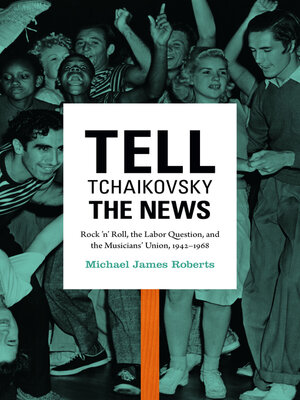Tell Tchaikovsky the News
ebook ∣ Rock 'n' Roll, the Labor Question, and the Musicians' Union, 1942-1968
By Michael James Roberts

Sign up to save your library
With an OverDrive account, you can save your favorite libraries for at-a-glance information about availability. Find out more about OverDrive accounts.
Find this title in Libby, the library reading app by OverDrive.



Search for a digital library with this title
Title found at these libraries:
| Loading... |
For two decades after rock music emerged in the 1940s, the American Federation of Musicians (AFM), the oldest and largest labor union representing professional musicians in the United States and Canada, refused to recognize rock 'n' roll as legitimate music or its performers as skilled musicians. The AFM never actively organized rock 'n' roll musicians, although recruiting them would have been in the union's economic interest. In Tell Tchaikovsky the News, Michael James Roberts argues that the reasons that the union failed to act in its own interest lay in its culture, in the opinions of its leadership and elite rank-and-file members. Explaining the bias of union members—most of whom were classical or jazz music performers—against rock music and musicians, Roberts addresses issues of race and class, questions of what qualified someone as a skilled or professional musician, and the threat that records, central to rock 'n' roll, posed to AFM members, who had long privileged live performances. Roberts contends that by rejecting rock 'n' rollers for two decades, the once formidable American Federation of Musicians lost their clout within the music industry.






